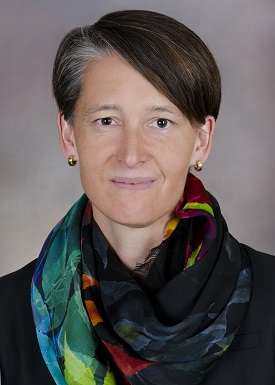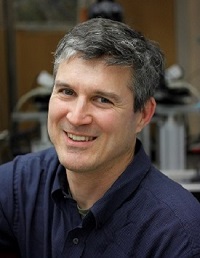Ines Koerner, M.D., Ph.D.

Ines Koerner, M.D., Ph.D.
Professor
Oregon Health & Science University
3181 S.W. Sam Jackson Park Road
Portland, OR 97239
Mail Code: HRC5N
Research
Dr. Koerner is anesthesiologists and neurointensivist, whose research focuses on ways to employ the inflammatory response after brain injury to simultaneously limit damage and enhance recovery. Dr. Koerner completed her anesthesiology residency in Germany and obtained a doctorate degree from Johannes Gutenberg-University in Mainz. After completing post-doctoral and clinical fellowships at OHSU, she joined OHSU faculty as a clinician-scientist. She is currently an Associate Professor and serves as Medical Director of the Neurosciences Intensive Care Unit at OHSU. Her research on the role of microglia after stroke and cardiac arrest has received funding from the NIH and AHA.
The Koerner lab studies the role of microglia, the brain resident innate immune cells, in brain injury and regeneration. Brain injury after cardiac arrest and the resulting cognitive dysfunction is the main focus. Current projects aim to identify the molecular signals by which microglia worsen injury after cardiac arrest and investigate whether microglial priming by ischemia/reperfusion contributes makes the brain more susceptible to dementia. We also explore whether microglia support restorative neurogenesis after cardiac arrest.
Research Team
Eric Schnell, M.D., Ph.D.

I am a clinician-scientist with an active basic and translational neuroscience research program. My research goal is to understand how synapses are formed by neurons and how these neurons contribute to information processing in both healthy and diseased brains. My lab uses electrophysiology, molecular biology, immunohistochemistry and translational models of neurological disease to study neuronal circuit structure and function. I also maintain a clinical practice in anesthesiology in the VA Portland Health Care System, caring for veterans with a wide array of neurosurgical, cardiovascular, and oncologic conditions.
Our current research focuses on how synapses are formed in the brain by adult-born neurons, how these neurons contribute to neuronal circuit function, and how they contribute to recovery from neurologic injury. Newly generated neurons must be integrated into existing neuronal circuits to contribute to information processing, and alterations in this process could have profound clinical implications. Our current focus is on understanding how adult-born neurons might contribute to the pathogenesis of post-traumatic epilepsy, and we have developed techniques to analyze synaptic transmission at synapses formed by these adult-born cells and to evaluate the behavioral consequences of activity in these adult-born neurons. Our scientific expertise lies in the study of neuronal structure and synaptic function, using electrophysiology, molecular biology, translational models and immunohistochemical/anatomical imaging techniques.